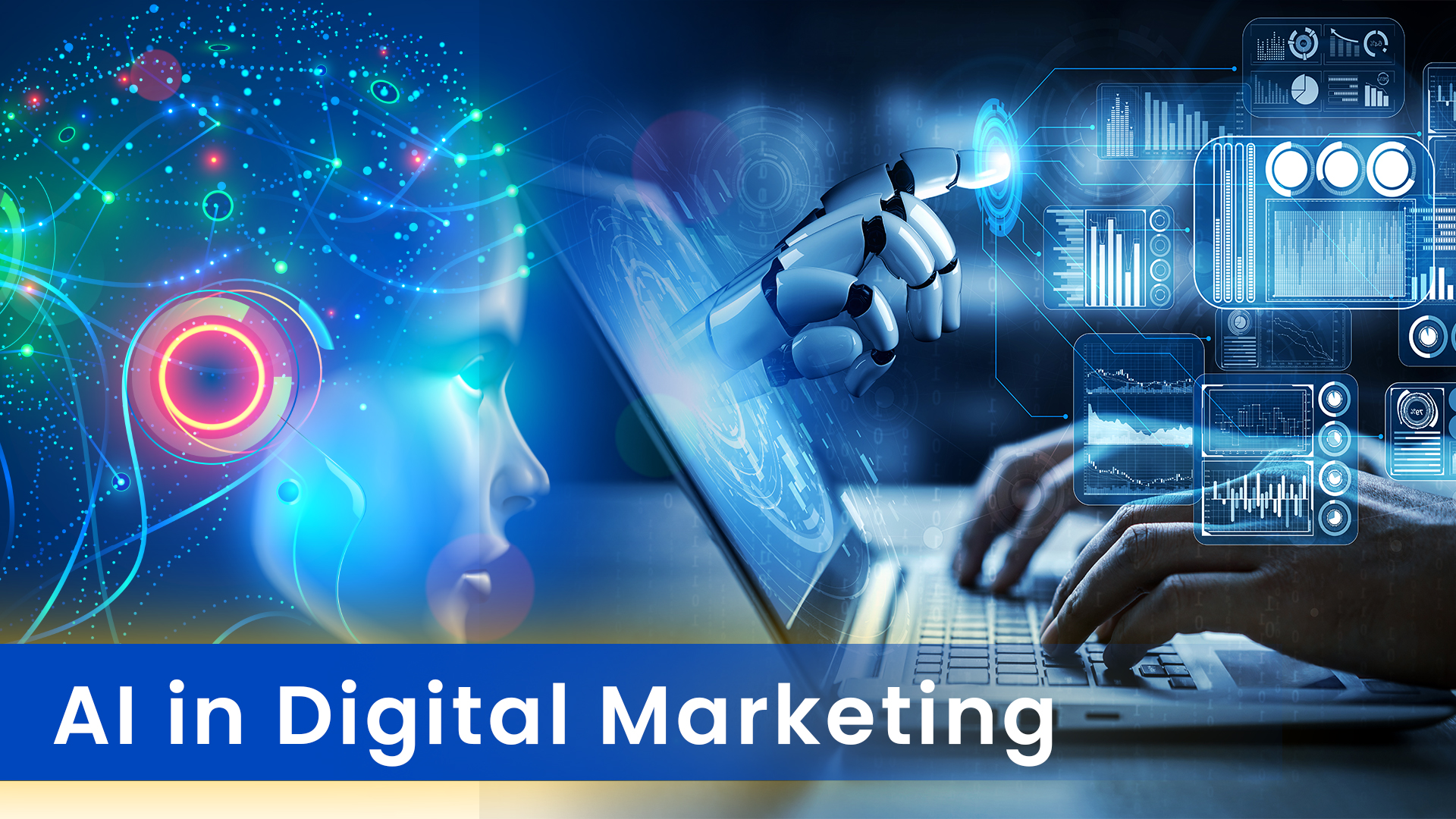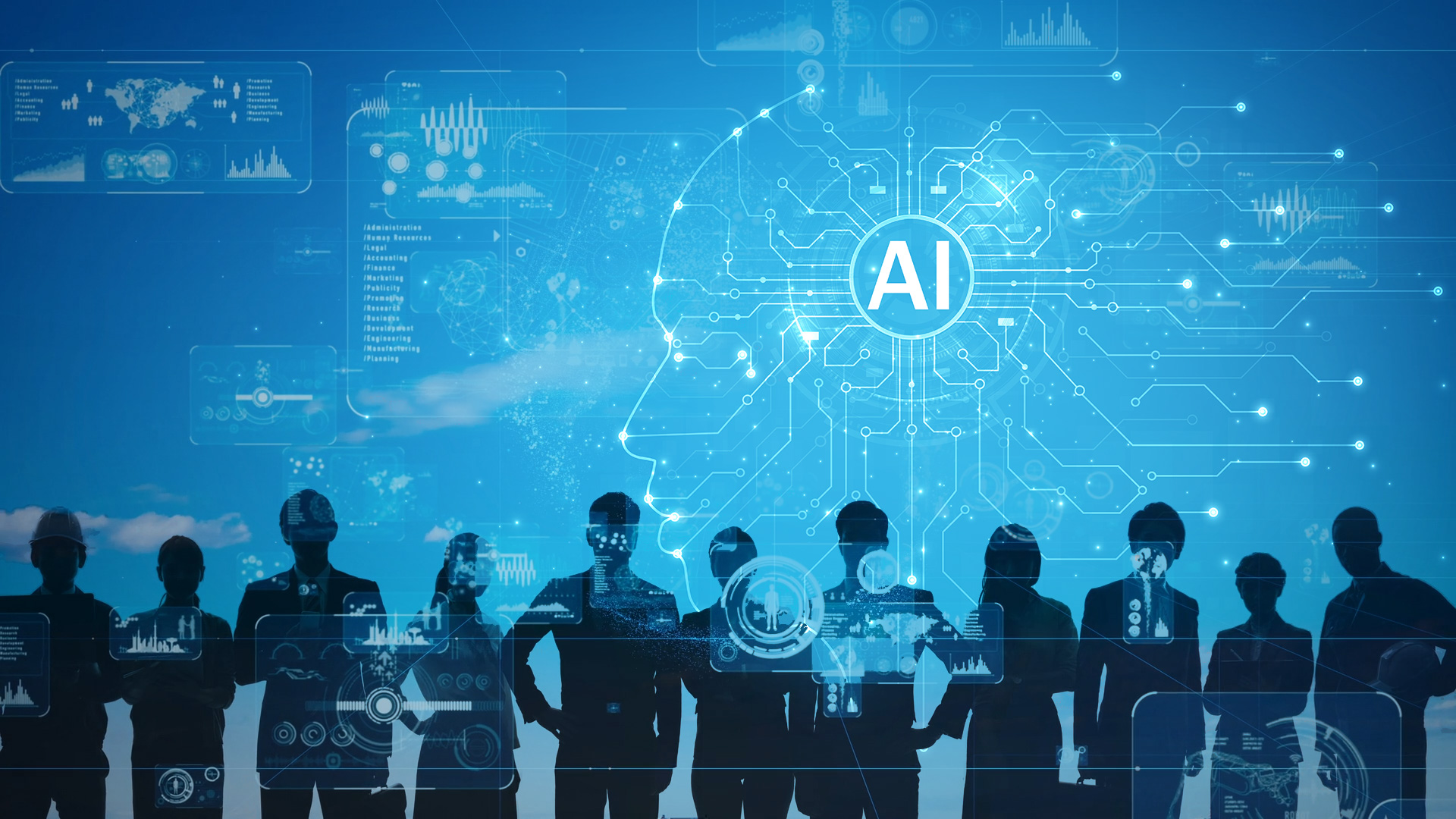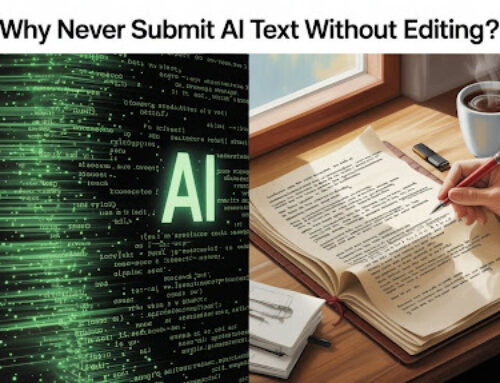Have you ever wondered how brands seem to know exactly what you need before you even realize it? That’s not magic- it’s AI marketing in action! From personalized ads to tailored shopping experiences, AI is reshaping how businesses reach out to customers. But as exciting as it sounds, it also brings up some important questions. Let’s explore how AI works in marketing, the risks of over-personalization, and whether it can sway your emotions or decisions.

What is AI Marketing and Why Does it Matter Today?
Have you ever noticed how some brands always seem to know what you need at just the right time? That’s the magic of AI Marketing! It’s all about using artificial intelligence and machine learning to make digital marketing smarter and more effective. From chatbots answering your queries to automated emails recommending the perfect product and using AI for text marketing, AI is everywhere. These marketing tools are helping every marketer create better marketing campaigns by analyzing tons of data. The result? Highly personalized experiences that feel just right for each customer.
But why is AI in marketing such a big deal today? Imagine running a business and having to figure out what your customers want without any help. It’s tough, right? AI takes away that guesswork. It helps businesses optimize their marketing strategies by automating tasks, improving analytics, and boosting ROI. Whether it’s a bot chatting with you or a tool that can personalize ads, the use cases of AI are endless. And the best part? It doesn’t just sell better; it also helps improve customer service. So, AI isn’t just a fancy tool—it’s the future of marketing!
The Role of Chatbots and Virtual Assistants in Modern Marketing
That’s not all! While AI Marketing helps businesses analyze customer data and develop smarter strategies, Invoice Templates for Google Docs and chatbots are revolutionizing digital marketing efforts. These tools aren’t just smart—they’re game-changers in social media marketing and beyond. They work 24/7, answering queries, guiding users, and even providing personalized recommendations. With the help of AI tools, businesses can reduce manual work and focus on their core marketing efforts, making things faster and more efficient.
Here’s how marketing helps with these tools: they use AI to handle repetitive tasks while leaving room for creativity in areas like content creation and copywriting. For example, AI and machine learning are used to power email marketing campaigns, making them more targeted and effective. Marketers can now automate responses and create engaging AI content that feels personal. Curious about how this works? Here are a few examples of AI in action:
- Businesses are using AI marketing tools to personalize outreach for their target audience.
- A marketing platform analyzes customer data to suggest better strategies for content marketing.
- Marketers can take a free trial of an email marketing tool to explore AI and automation for their campaigns.
By integrating the best AI marketing tools, businesses can boost conversion rates and deliver better customer experiences. Whether it’s for search engine optimization, enhancing email marketing campaigns, or creating seamless interactions, the power of AI is undeniable. So, isn’t it amazing how AI can also make marketing more engaging and impactful while saving time and resources? You can also learn these AI-driven marketing skills through the Skillfloor online 𝗱𝗶𝗴𝗶𝘁𝗮𝗹 𝗺𝗮𝗿𝗸𝗲𝘁𝗶𝗻𝗴 𝗰𝗼𝘂𝗿𝘀𝗲.
How Does AI Create Marketing Content Tailored for Individual Customers?
AI is like a super-smart assistant that can learn what you like and deliver content that matches your taste. But how does it manage to do that? It’s all about data. By analyzing your browsing history, shopping habits, and even your social media activity, AI can predict what you might be interested in.
Here’s what V. Frank Sondors, founder of Salesforge.ai, says about this:
“AI can tailor marketing content by analyzing vast amounts of customer data, including browsing habits, purchase history, and social media activity. With this information, AI can predict what a customer might be interested in, creating highly personalized ads or email content that feels relevant and timely. At Salesforge.ai, we use this data to tailor messages that align with where a customer is in their buying journey, increasing conversion rates.”
Even Chris Putrimas, CEO of Teak Warehouse, highlights a similar approach:
“AI creates tailored marketing content by analyzing customer data—like browsing history, purchase behavior, and preferences—to deliver highly relevant ads and messages. For instance, if a customer frequently browses outdoor furniture, AI can highlight a curated selection of teak tables with design tips, making the experience feel personal and engaging.”
Pretty cool, right? AI not only helps brands make better marketing strategies but also gives you a more relevant shopping experience.
What Risks Arise from Over-Personalization in Advertisements and Branding?
But wait—can too much personalization be a bad thing? The answer is yes. While it’s nice to see ads that match your preferences, over-personalization can feel creepy. Imagine getting an ad for something you just talked about with a friend. Feels a bit like someone’s spying, right?
Here’s what Sondors thinks about the risks:
“However, over-personalization in advertising can backfire. When brands push tailored content too aggressively, it can feel invasive or overly familiar, potentially turning customers off. For example, targeting someone too precisely may make them feel like their privacy is being invaded, which can damage trust.”
Chris Putrimas agrees:
“Excessive personalizing may shift from being beneficial to becoming intrusive. When ads feel too targeted, customers may feel their privacy is invaded, leading to mistrust. It’s a delicate balance—keeping personalization relevant but not overly revealing.”
So, while AI helps brands connect with you, they need to tread carefully to avoid crossing the line.
Could AI Be Used to Manipulate Consumer Emotions or Decisions?
Now, here’s a tricky question. Can AI manipulate how you feel or what you decide to buy? It’s possible. AI can use emotional triggers like urgency or discounts to influence your choices. For instance, showing “Only 2 items left in stock” can make you buy something you weren’t planning to.
Here’s what Sondors has to say:
“AI can also manipulate consumer emotions, especially when it comes to urgency-driven ads or emotional triggers. It’s important to balance personalization with ethical considerations to ensure AI helps customers make informed decisions without feeling manipulated.”
Chris adds his perspective too:
“AI can influence emotions and decisions by predicting what resonates with individuals. While this can improve user experience, it also raises ethical questions. Brands must focus on transparency and integrity. Manipulation may yield short-term gains, but authenticity and trust build lasting relationships. For us at Teak Warehouse, it’s all about enhancing, not exploiting, the customer journey.”
This shows how important it is for brands to use AI responsibly. Customers should feel empowered, not pressured, by the marketing they see.

Challenges and Ethical Questions of AI in Marketing
Stepping into the world of AI Marketing can feel exciting, but it’s not without its challenges. As businesses dive into AI, they quickly realize that balancing efficiency with ethics is no easy task. Imagine using AI for content creation that sounds so real, but customers begin to question if there’s any human touch left. Or picture marketing teams relying heavily on artificial intelligence technologies like generative AI, which might accidentally spread bias without proper oversight. For business leaders, navigating these challenges while staying competitive in new markets can be tricky.
Take ecommerce sites, for instance. They often use tools like recommendation engines, dynamic pricing, and predictive analytics to tailor the shopping experience. While these tools for marketing can boost sales, they also raise concerns about fairness and transparency. Should pricing change based on who’s browsing? Are these systems unintentionally favoring certain customers?
Here’s an example: A brand used natural language processing to analyze social media data and improve its social media management. It led to fantastic customer insights, but over-reliance on this data created a campaign that unintentionally offended a part of their audience. It showed that AI adoption needs careful handling and constant human checks.
To succeed, chief marketing officers and marketing teams must prioritize ethical practices. By combining intelligence tools with human oversight, companies can elevate their strategies without compromising trust. Whether it’s crafting email campaigns, designing innovative video creation, or even integrating AI-powered assistants like Alexa, these tools should always aim to help you create a balanced and inclusive experience for all.
Cost Efficiency and ROI
When it comes to AI Marketing, one of its biggest benefits is cost efficiency. Imagine being able to analyze large amounts of actionable data quickly and accurately. AI helps businesses personalize content accordingly, ensuring their efforts are focused on reaching the right audience at the right time. By combining big data with competitive intelligence, companies can plan their next best action with precision, saving time and resources. This not only reduces costs but also ensures better results.
For example, a company streamlined its content creation process by adopting AI tools that could help you produce high-quality content faster. These tools were professional and accurate, reducing the need for multiple revisions. Additionally, AI-powered search engine optimization improved their visibility, leading to a higher return on investment. The sales team also benefited by focusing on leads generated through AI’s targeted advertising based on user behavior, making their efforts more effective.
AI doesn’t just save money; it frees up businesses to focus on what matters most. By handling repetitive tasks so you can focus on creativity and strategy, AI tools help you write smarter campaigns and make advertising smarter. Whether it’s improving searches to make them better or helping you gain a competitive advantage, AI ensures businesses get the most out of their marketing budgets. Isn’t that a win-win for everyone?
